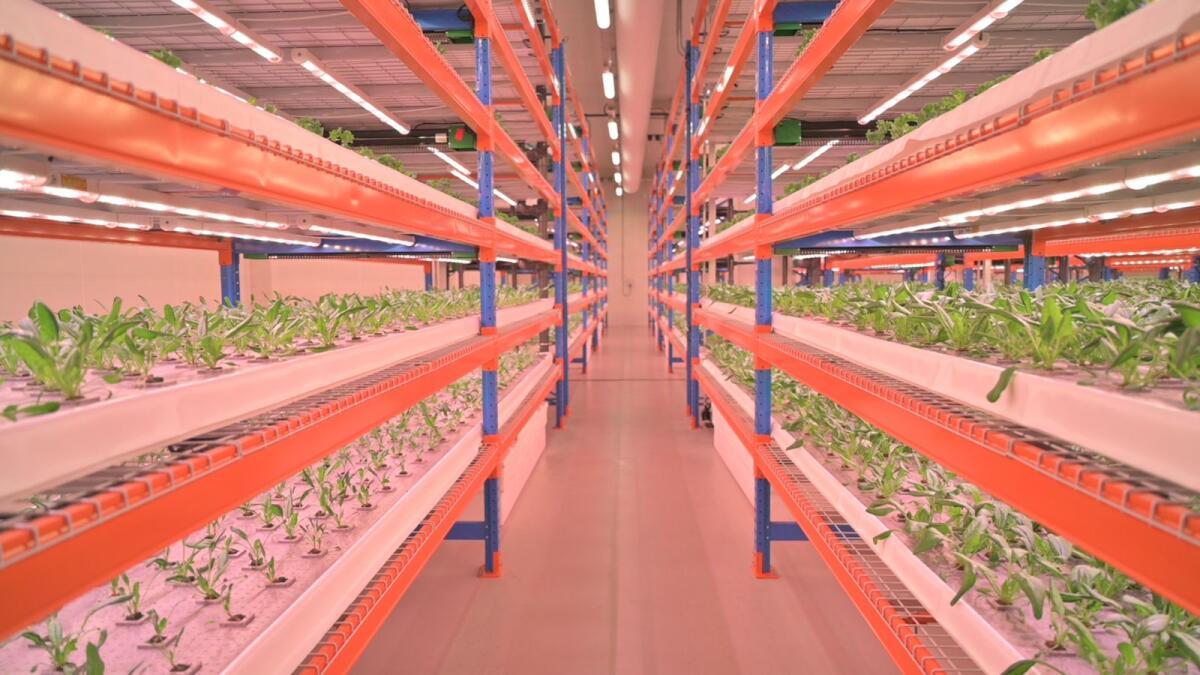
Dubai: How Vertical Farming Can Work In Residential Buildings
Last updated: Fri 19 Jan 2024, 7:30 AM
Residential buildings in the UAE are set to go green and embrace vertical farming, where smart agriculture and urban architecture will converge to transform Dubai into a greener and more sustainable city.
The concept of vertical farming in residential buildings originated from a team of students at the Canadian University Dubai (CUD) School of Engineering, Applied Science, and Technology. The team devised a project envisioning a building featuring designated floors for vertical farms, seamlessly integrating with other floors allocated for residential use.
The building, with its urban architectural design will capture sunlight from all angles adding to the sustainability factor.
Stay up to date with the latest news. Follow KT on WhatsApp Channels.
The project is the combined efforts of three computer engineering and computational science students, Yasmine Sadek, Moustafa Sherif, and Ayman Samsudeen, along with a graduate, Adel Yousefi.
Known as Agri-Connect, the technology combines Artificial Intelligence (AI), the Internet of Things (IoT), and elements of urban architecture, smart agriculture, and smart cities to create an ecosystem that supports vertical farming within intelligent buildings.
The project. Photo: SuppliedTalking about their technology, Yasmine Sadek said,“Our project focuses particularly on innovations in farming and agriculture using IoT components. It involves vertical smart farms that are incorporated into building designs and monitored through satellite imagery and the use of advanced sensors and cameras to assess various plant health indicators, such as moisture and humidity, soil pH, and nutrient levels.”
Satellite imagery and AI useShe stressed that it will also enable residents to assess the general well-being of building operations through indicators such as energy efficiency and carbon dioxide emissions.
Satellite imagery that will have sensors traverse the city, capturing plant images. These plants are observable from the sides of the building, as they remain exposed externally.
“An Artificial Intelligence model can analyse these images, sending the resulting data to farmers to assess potential plant diseases. Predictive models will be employed in this process. The satellite, while passing over the city, scans the plants along the sides of buildings, facilitated by the capabilities of edge computing,” she added.
Photo: Supplied Building waste to power waterThe farms inside the structure will be supplied with irrigation water sourced from the residential buildings.
“Any surplus water used can be redirected to the farms, preventing water wastage. Waste from the buildings can also be used as manure. Additionally, the ability to grow crops tailored to the climate allows for a diverse range of produce to be cultivated based on specific needs.”
Another dashboard designed specifically for building residents would enable them to monitor water and electricity consumption.
“This empowers them to regulate their daily lives more effectively. When food waste within the building is repurposed as compost, it contributes to a sustainable environment, allowing residents to have an understanding of the amounts being wasted.
"The future of cities lies in their ability to harness technology to create sustainable urban ecosystems. Smart buildings are, therefore, the backbone to a flourishing society as they promote environmental sustainability and cost savings by integrating different technologies,” added Sadek.
- Canadian University Dubai students develop solutions to promote smart green buildings
ALSO READ:
- Vertical farming, hydroponics: How UAE farms are creating oases of green across the desert
- From farm to table: Expo City Dubai's organic farming cultivates sustainable living
- UAE aims to get 50% basic food from local farms by end of this year
- Watch: Sharjah Ruler drives to massive UAE wheat farm to witness first harvest

Legal Disclaimer:
MENAFN provides the
information “as is” without warranty of any kind. We do not accept
any responsibility or liability for the accuracy, content, images,
videos, licenses, completeness, legality, or reliability of the information
contained in this article. If you have any complaints or copyright
issues related to this article, kindly contact the provider above.


















Comments
No comment